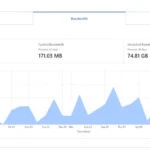Remote Bookkeeping Jobs In today’s digital age, remote work has become increasingly popular, offering individuals the opportunity to work from anywhere in the world. One such remote job option gaining traction is remote bookkeeping. But what exactly are remote bookkeeping jobs?
Remote bookkeeping involves performing accounting tasks for businesses or individuals from a location outside of the traditional office setting. These tasks typically include recording financial transactions, managing accounts payable and receivable, and generating financial reports. With the rise of cloud-based accounting software and digital communication tools, remote bookkeeping has become a viable career option for many.
Advantages of Remote Bookkeeping Jobs
Flexibility in Work Hours
One of the primary benefits of remote bookkeeping jobs is the flexibility they offer in terms of work hours. Unlike traditional office roles, remote bookkeepers have the freedom to set their own schedules, allowing them to work at times that suit their lifestyle.
Work-Life Balance
Remote bookkeeping jobs also provide the opportunity for better work-life balance. By eliminating the need for a daily commute to the office, remote bookkeepers can spend more time with their families or pursuing hobbies and interests outside of work.
Elimination of Commuting
The elimination of commuting is another significant advantage of remote bookkeeping jobs. Not having to travel to and from an office every day not only saves time but also reduces stress and expenses associated with commuting.
Skills Required for Remote Bookkeeping Jobs
To excel in remote bookkeeping jobs, certain skills are essential:
Proficiency in Accounting Software
Remote bookkeepers must be proficient in using accounting software such as QuickBooks, Xero, or FreshBooks. Familiarity with these tools allows them to efficiently manage financial data and generate accurate reports.
Attention to Detail
Attention to detail is crucial for remote bookkeepers to ensure accuracy in financial records and reports. Even minor errors can have significant consequences, so remote bookkeepers must have a keen eye for detail.
Time Management Skills
Remote bookkeeping jobs often involve managing multiple clients or projects simultaneously. Therefore, strong time management skills are essential to prioritize tasks effectively and meet deadlines.
How to Find Remote Bookkeeping Jobs
Online Job Boards and Platforms
Online job boards and platforms such as Indeed, LinkedIn, and FlexJobs are excellent resources for finding remote bookkeeping jobs. These platforms allow individuals to search for remote positions based on their skills and experience.
Networking Within the Industry
Networking within the accounting and bookkeeping industry can also lead to remote job opportunities. Attending industry events, joining professional associations, and connecting with other professionals on social media platforms like LinkedIn can help remote bookkeepers expand their network and discover job openings.
Freelancing Websites
Freelancing websites such as Upwork, Freelancer, and Fiverr are popular platforms for finding remote bookkeeping jobs on a freelance basis. These platforms connect remote bookkeepers with clients seeking accounting services, allowing for flexibility and independence in work arrangements.
Tips for Success in Remote Bookkeeping Jobs
Setting Up a Home Office
Creating a dedicated workspace at home is essential for remote bookkeepers to maintain productivity and focus. A quiet, organized environment free from distractions can help remote bookkeepers stay on task and produce high-quality work.
Establishing a Routine
Establishing a daily routine is key to success in remote bookkeeping jobs. Setting specific work hours, taking regular breaks, and adhering to a consistent schedule can help remote bookkeepers maintain productivity and avoid burnout.
Continuous Learning and Skill Development
The field of accounting and bookkeeping is constantly evolving, with new technologies and regulations shaping the industry. Remote bookkeepers must stay updated on industry trends and advancements by participating in professional development opportunities such as online courses, webinars, and certifications.
Challenges of Remote Bookkeeping Jobs
While remote bookkeeping jobs offer numerous benefits, they also present certain challenges:
Isolation and Lack of Team Interaction
Working remotely can be isolating, especially for individuals accustomed to the social interaction of a traditional office environment. Remote bookkeepers may miss out on the camaraderie and collaboration that comes with working alongside colleagues.
Distractions at Home
Working from home can also present distractions that may interfere with productivity. From household chores to family members or pets seeking attention, remote bookkeepers must find ways to minimize distractions and stay focused on their work.
Communication Barriers with Clients or Employers
Communicating effectively with clients or employers can be challenging in a remote work setting. Without face-to-face interaction, remote bookkeepers must rely on email, phone calls, or video conferencing tools to convey information and address concerns.
Overcoming Challenges
Utilizing Technology for Communication
Technology can help bridge the communication gap in remote bookkeeping jobs. Remote bookkeepers can leverage tools such as Slack, Zoom, or Microsoft Teams to stay connected with clients or employers and collaborate effectively on projects.
Joining Online Communities or Forums for Support
Joining online communities or forums dedicated to remote work can provide remote bookkeepers with a sense of camaraderie and support. These platforms allow individuals to connect with like-minded professionals, share experiences, and seek advice on navigating the challenges of remote work.
Creating Boundaries Between Work and Personal Life
Establishing boundaries between work and personal life is essential for remote bookkeepers to maintain a healthy work-life balance. Setting designated work hours, creating a separate workspace, and unplugging from work-related tasks during non-work hours can help remote bookkeepers avoid burnout and maintain overall well-being.










